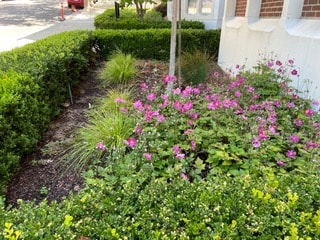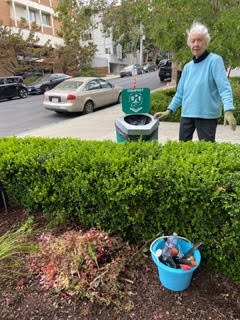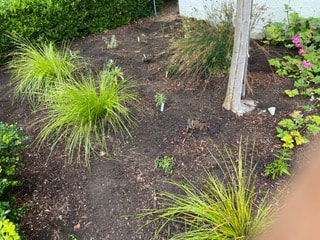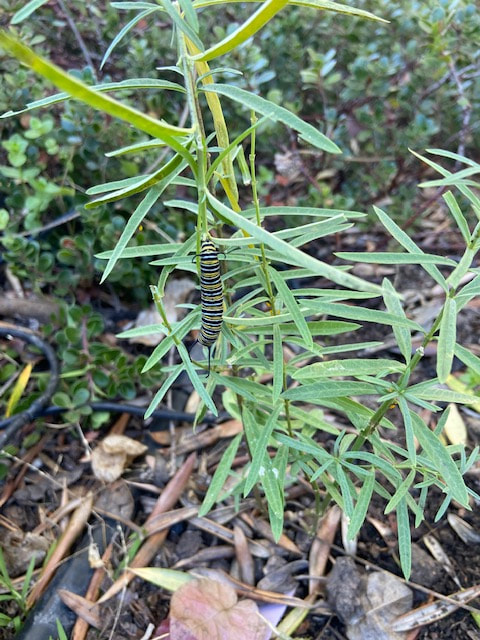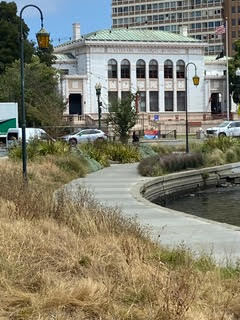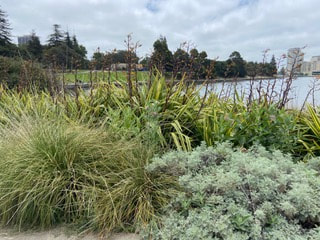Worm Composting at St. Paul's
Job 21:26 - They shall lie down alike in the dust, and the worms shall cover them.

Amy Kessler led a most informative and interesting workshop about how to compost using worms. Amy maintains the worm bin used by St. Paul’s School, located in our labyrinth pollinator garden. During her workshop, she demonstrated how to set up a worm bin, the types of worms to use, explained what to feed the worms, and finally how to harvest the valuable compost they produce. She explained that this type of compositing is usually done with common red wiggler worms (Eisenia fetida).
Click HERE for more photos.
Worm composting is different than conventional composting because it does not use heat to create the compost. Worms do not like heat. Instead worm composting relies on the specialized digestive system of the red wriggler worm to convert food waste into worm castings. The worm castings are compost. Like traditional composting, worm composting has the benefit of diverting food waste from landfills. But also has benefits over traditional composting because worm compost enhances soil fertility, improves soil structure, helps the soil retain moisture, and promotes healthy root growth.
When you have a chance go check it out. Also, Amy can answer questions and can advise you on how to start your own worm compost. She also suggested reading the following books:
Click HERE for more photos.
Worm composting is different than conventional composting because it does not use heat to create the compost. Worms do not like heat. Instead worm composting relies on the specialized digestive system of the red wriggler worm to convert food waste into worm castings. The worm castings are compost. Like traditional composting, worm composting has the benefit of diverting food waste from landfills. But also has benefits over traditional composting because worm compost enhances soil fertility, improves soil structure, helps the soil retain moisture, and promotes healthy root growth.
When you have a chance go check it out. Also, Amy can answer questions and can advise you on how to start your own worm compost. She also suggested reading the following books:
- Worms Eat My Garbage by Mary Appelhof
- Let It Rot by Stu Campbell
- The Earth Moved by Amy Stewart
- https://extension.oregonstate.edu/catalog/pub/em-9034-composting-worms
Join our Pollinator Posse!
Last summer, we finished the first planting of the pollinator garden. Native plants were installed that will provide places to lay eggs and nectar for monarch’s and other pollinators. To install the garden we first pulled weeds, then racked back the existing mulch, then dug the holes for each plant, watered them, planted milkweed and wildflower seeds and added compost and finally replaced the mulch. St. Pauls has a compost bin in the Courtyard so we put the weeds we pulled into the compost bin.
Below, you can see a before & after photos, and our first caterpillar!
Below, you can see a before & after photos, and our first caterpillar!
Directions on how you can grow your own is on the Growing Milkweed page
Monarch Larva Monitoring Project
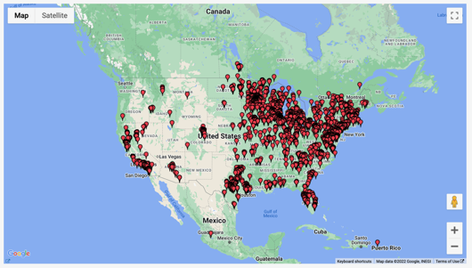 We are one of the dots on the national monitoring map.
We are one of the dots on the national monitoring map.
St Paul’s is officially part of the Monarch Larva Monitoring Project (MLMP) which involves volunteers from across North America and New Zealand in monarch research. It was developed in 1997 by researchers at the University of Minnesota to collect long-term data on larval monarch populations and milkweed habitat.
The project focuses on monarch distribution and abundance during the breeding season.
St Pauls would like to grow our monitoring team and you can also monitoring milkweed in your own garden. For more information and to sign up for monitoring training sign up on the list in the Northax or email [email protected]
More information about the monitoring project is located at
https://monarchjointventure.org/mlmp
The project focuses on monarch distribution and abundance during the breeding season.
St Pauls would like to grow our monitoring team and you can also monitoring milkweed in your own garden. For more information and to sign up for monitoring training sign up on the list in the Northax or email [email protected]
More information about the monitoring project is located at
https://monarchjointventure.org/mlmp
Our monitoring area is located at the corner of Grand Avenue and Harrison Street.
at St. Paul's, All Are welcome.
|
Email Sign Up
For Email Newsletters you can trust. |
|
114 Montecito Avenue Oakland, CA 94610 | 510 834 4314 | [email protected]
|
Our baptismal vow is to seek and serve Christ in others.
|

